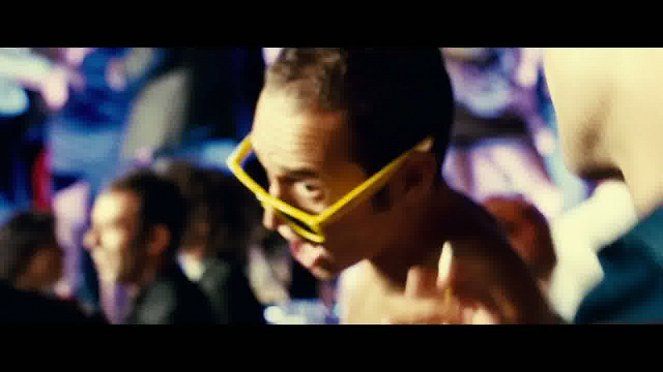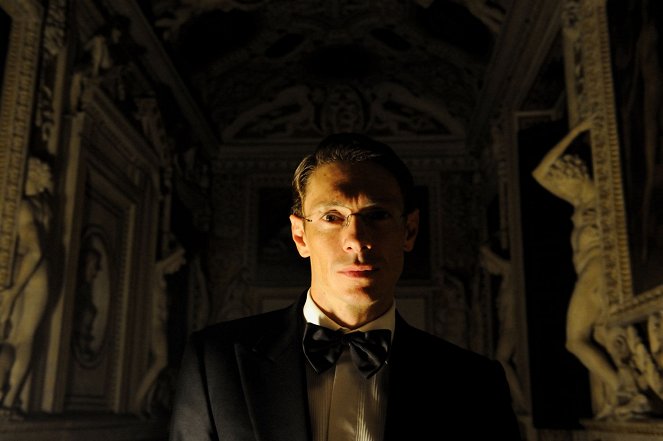Directed by:
Paolo SorrentinoCinematography:
Luca BigazziComposer:
Lele MarchitelliCast:
Toni Servillo, Sabrina Ferilli, Carlo Verdone, Carlo Buccirosso, Isabella Ferrari, Giorgio Pasotti, Franco Graziosi, Serena Grandi, Luca Marinelli (more)VOD (4)
Plots(1)
Aristocratic ladies, social climbers, politicians, high-flying criminals, journalists, actors, decadent nobles, prelates, artists and intellectuals - whether authentic or presumed - form the tissue of these flaky relationships, all engulfed in a desperate Babylon which plays out in the antique palaces, immense villas and most beautiful terraces in the city? They are all there, and they are not seen in a good light? Jep Gambardella, 65, indolent and disenchanted, his eyes permanently imbued with gin and tonic, watches this parade of hollow, doomed, powerful yet depressed humanity. A moral lifelessness enough to make one's head spin? And in the background, Rome in summer. Splendid and indifferent, like a dead diva? (official distributor synopsis)
(more)Videos (3)
Reviews (9)
A very interesting film that slightly pretends to be a contemplation on old age, slightly as a glimpse into the realm of the wealthy and their lives, which move at a frantic pace and it doesn't matter how old you are, but it's actually an existential drama about the place of a person in the world. And it doesn't matter who you are, because if you don't realize what you actually want, what you're doing, where you're heading, your life will stop making sense. You won't have a goal. Nevertheless, it is possible to live like this. The film may be a bit too long and in some passages draggy, but especially the first half offers truly unique, original, and definitely unexpected scenes. The scene on the balcony is then almost surreally magical.
()
Crisis as a pose, beauty as the only principle of construction. Sometimes it works wonderfully (the introduction and the conclusion), whilst other times it's empty, ostentatious, unnecessarily eloquent and awkwardly theatrical. Even the biting irony is only about halfway there. Sorrentino is an excellent director, but unlike Fellini's "Roman frescoes", which are internally experienced and in every chord accurate, he realizes the idea of a nostalgic protagonist in crisis much less convincingly, but all the more heinously and loudly. A film that plays at being a classic just like the protagonist plays at being a blessed man of the world. Sorrentino had already made films that are an order of magnitude better, but also less affectionate.
()
A writer's block, a magical city, beautiful women and a (dis)appetite for a wild social life, or the Fellini of modern times. It's not easy to immediately collect all your thoughts and fully embrace the elaborate metaphorical play in which Sorrentino has wrapped a story about the present-day fate of old age and loneliness, but it's all too easy to like this play and be swept away by it. The charming production design itself, packed with beautiful images, flawlessly composed music and civil dialogues, is a delight to watch, not to mention the perfect actors and the precisely dosed insight that has always belonged to life, and therefore to this film. And it's uncanny how similar the emotions of the film sound compared to the famous 8 1/2, fifty years earlier. People don’t change and Italian filmmakers are proof of that. :) 80%
()
Only Paolo Sorrentino can meditate on life like this. To understand The Great Beauty, one must have matured and have experienced some things in life. It's hard to find the right words here, as one's own experiences are not transferable. After watching the movie for the second time, I perceive everything much more deeply. Perhaps the third viewing will really break me apart... (85%)
()
“È solo un trucco.” Sorrentino picks up where Fellini left off. The exchange of views between Jep and Wilhelmina the girls from the convent school, separated from the protagonist by a screen, is strikingly reminiscent of the ending of La Dolce Vita. Whereas Marcello is only just entering the world of Rome’s upper crust, Jep Gambardella has already been there and done that, and (later) understood that authentic life is lived on the other side, not only in the spatial sense, but also in the temporal sense – the protagonist takes refuge from the all-pervasive emptiness in memories of his childhood, when he was still unknowledgeable, when he was only just becoming aware. If his wandering as a unknowledgeable flâneur, which we are witnesses to, teaches him anything, it’s the fact that we cannot deny ourselves or our own story. ___ The most spiritually valuable moments of Jep’s profane existence are not the direct confrontation with religious symbols, but encounters with innocence (girls, lovers kissing) and with passing time (the time-lapse photography project) and brief glimpses into reality, which is just as fleeting as beauty and love. A very brief encounter with Fanny Ardant, who elegantly carries with her the characters from every film in which she has appeared, brings about an hour-long visit to a church. During these moments, Jep perhaps realises that though he may know everyone and can go anywhere, the values that are worth striving for remain difficult for him to attain. ___ The Great Beauty is a film of a time and society without narrative potential. All of the stories had already been told, so what remains is only the recycling of familiar situations and mechanical alteration of the actors, roles and props. Time and movement became irrelevant. Despite that, Sorrentino managed to make a film that pulsates with life, though it is about a world that rejects two basic characteristics of cinema and also about a life that has no direction. ___ Thanks to the ceaseless movement of the camera, the surprising alternation of shot types (the various ways in which they are linked would be worthy of a separate analysis), the placement of unexpected objects in the mise-en-scéne and the lively soundtrack, which doesn’t distinguish between Bizet and Italian pop, The Great Beauty never stops flowing and doesn’t let you leave the cinema until the house lights come up. Only later you can start to process the implied ideas and fill in the empty space that has been spread out before you. 85%
()



Ads